When your stomach starts to grumble during a late-night television marathon, you may wonder if it’s worth grabbing a snack before the next episode. Though you’ve probably heard the old diet trick that says you should never eat after six or late at night, a healthy late-night snack is definitely an okay thing to have, says registered dietitian, Abby Langer.
First, be sure to check in with yourself to ensure you’re not just eating out of hunger, boredom, or the power of suggestion (that fast food ad between episodes looked really tasty). “It's very important to listen to your body and nourish it properly,” says dietitian Andrea Mathis. “Depending on your activity level or your body’s current state, you may need to consume more or less kilojoules. Listening to your body and following those hunger cues will help to provide your body with proper nourishment.”
If you’re finding that you’re simply stressed or bored, try to turn to an alternative coping mechanism, like taking a walk or relaxing bath, Mathis says. You may also want to check in with how much you’re hydrating and ensure you’re not just a little thirsty, she adds. “A growling or empty feeling in the stomach is often related to hunger, but someone can also experience a headache or fatigue which can be a symptom of hunger or mild dehydration,” Mathis says. “To prevent this confusion, be sure to keep yourself hydrated throughout the day, and before you grab those late-night snacks.”
And if your stomach is grumbling and you’re actually hungry, don’t deny your natural need for food. “I might not eat an entire meal late at night, but I'd never tell someone to go to bed hungry,” Langer says. Even if you ate a full dinner, it’s completely possible that your body is actually hungry and needs some extra fuel to keep you going. Staying up later than usual means your body is working and using energy, so you may need more kilojoules than you’re used to, says dietitian Jessica Levinson.
What makes a healthy late-night snack?
It’s essential to choose a late-night snack that is rich in nutrients and provides some value and energy for you to use, Levinson says. Excess kilojoules from non-nutrient dense foods are likely to be stored because your metabolism slows at night, she adds. Aim for a snack that has a mix of proteins, carbohydrates, and fats to promote fullness, suggests Langer. “Recent research shows that protein-rich snacks in the evening are superior to those that are mostly carb, simply because protein has the least effect on our protein and lipid metabolism at that hour of the day,” she says. Additionally, be sure to include some extra fibre in your snack, notes Mathis. A balance of protein, fibre, and healthy fat ensures that your blood sugar levels will stay stable and hold you over until the morning.
And before you reach for that high-fat food, spicy snack, or sip of alcohol, Langer suggests reevaluating that decision as these foods are known to disrupt sleep. Plus, beware of any foods hiding caffeine, like coffee-infused foods, Mathis adds.
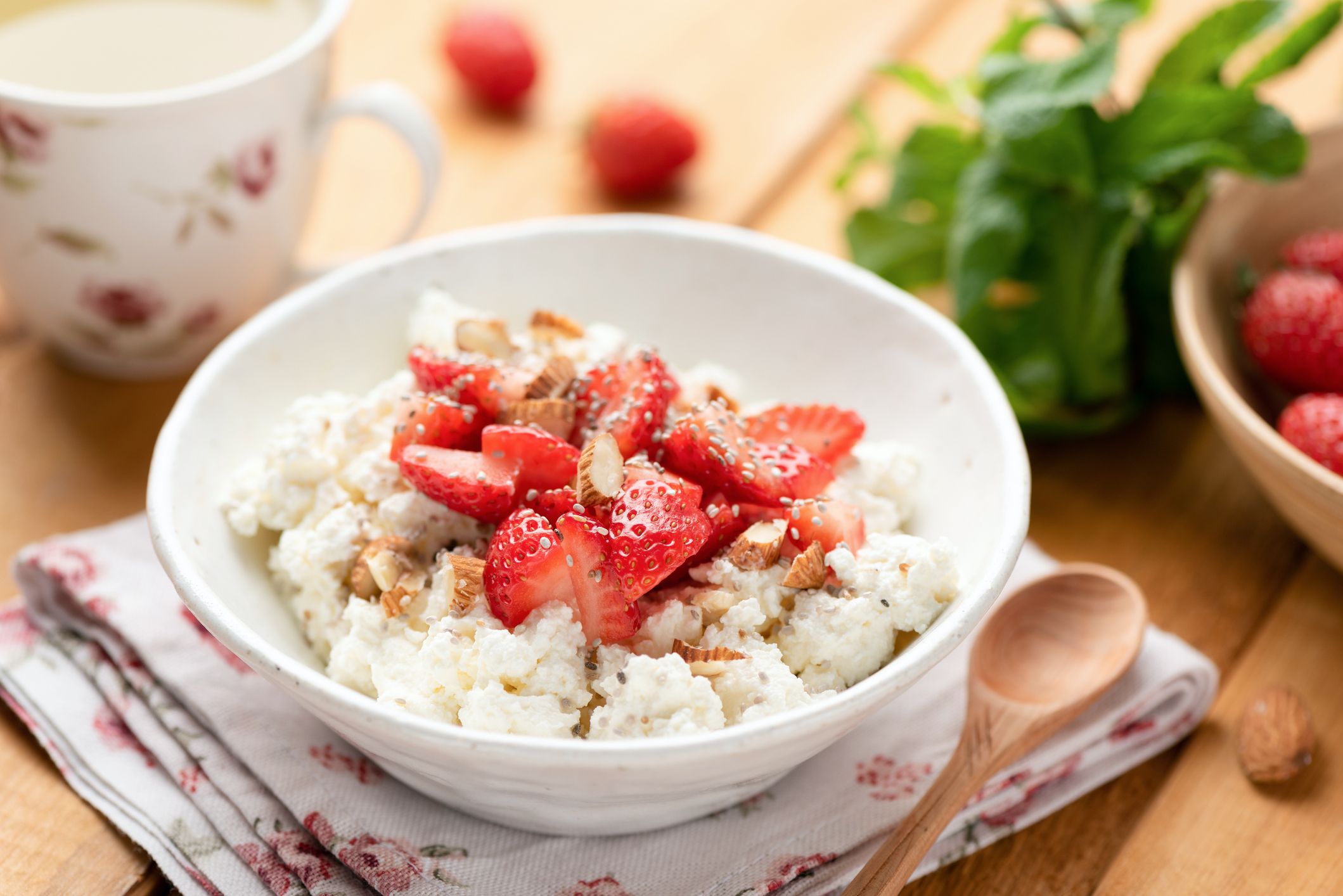
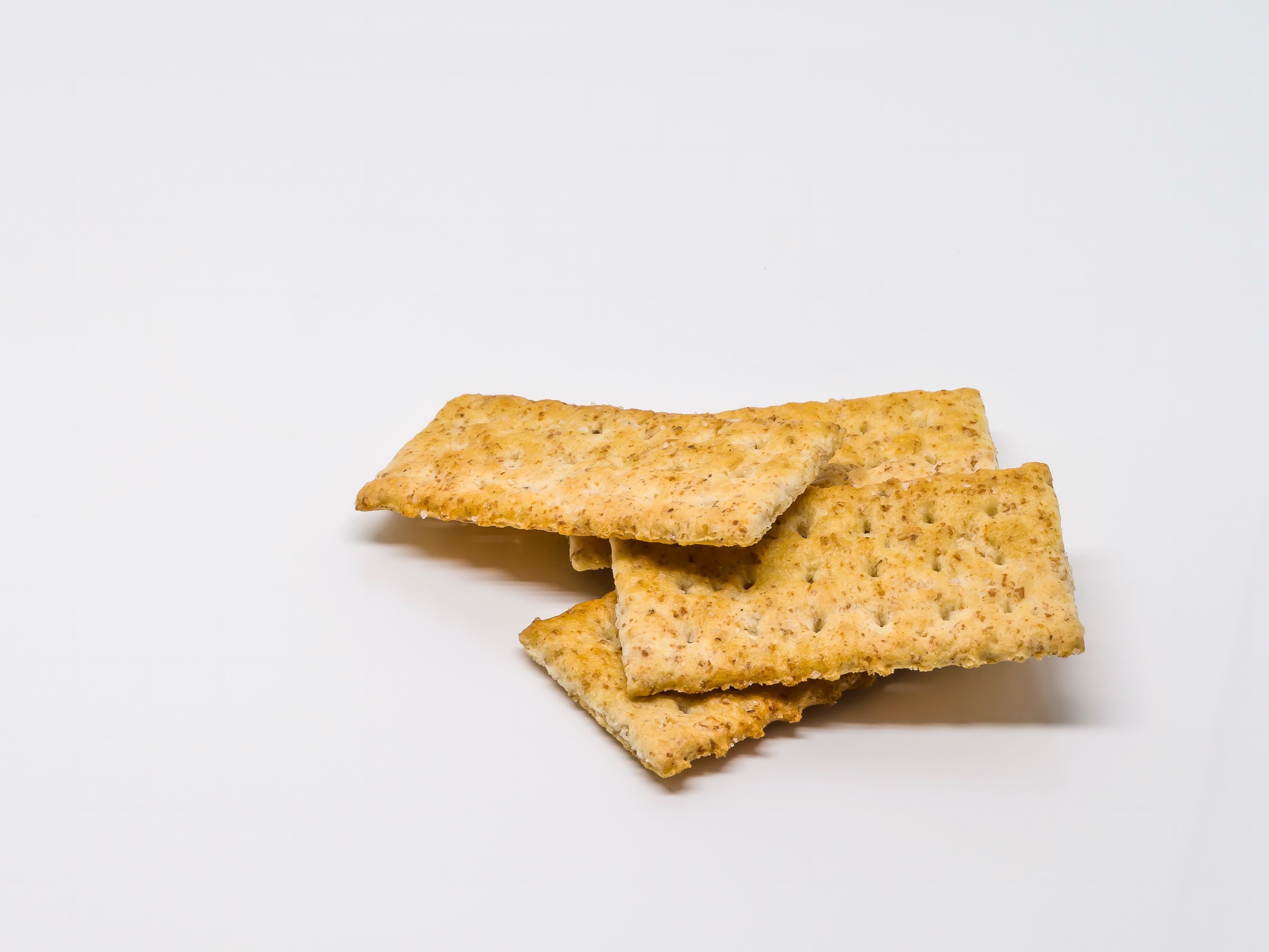
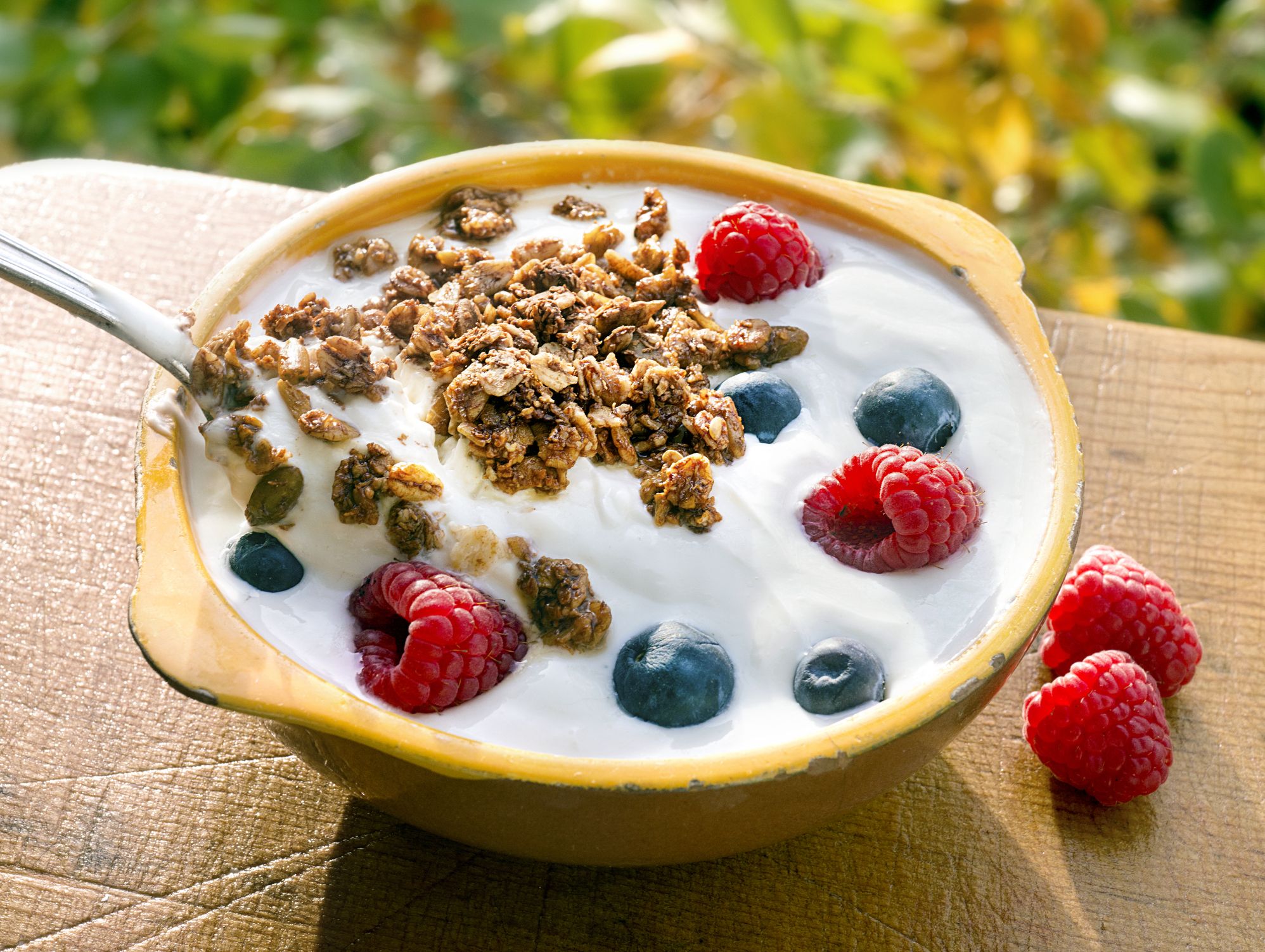
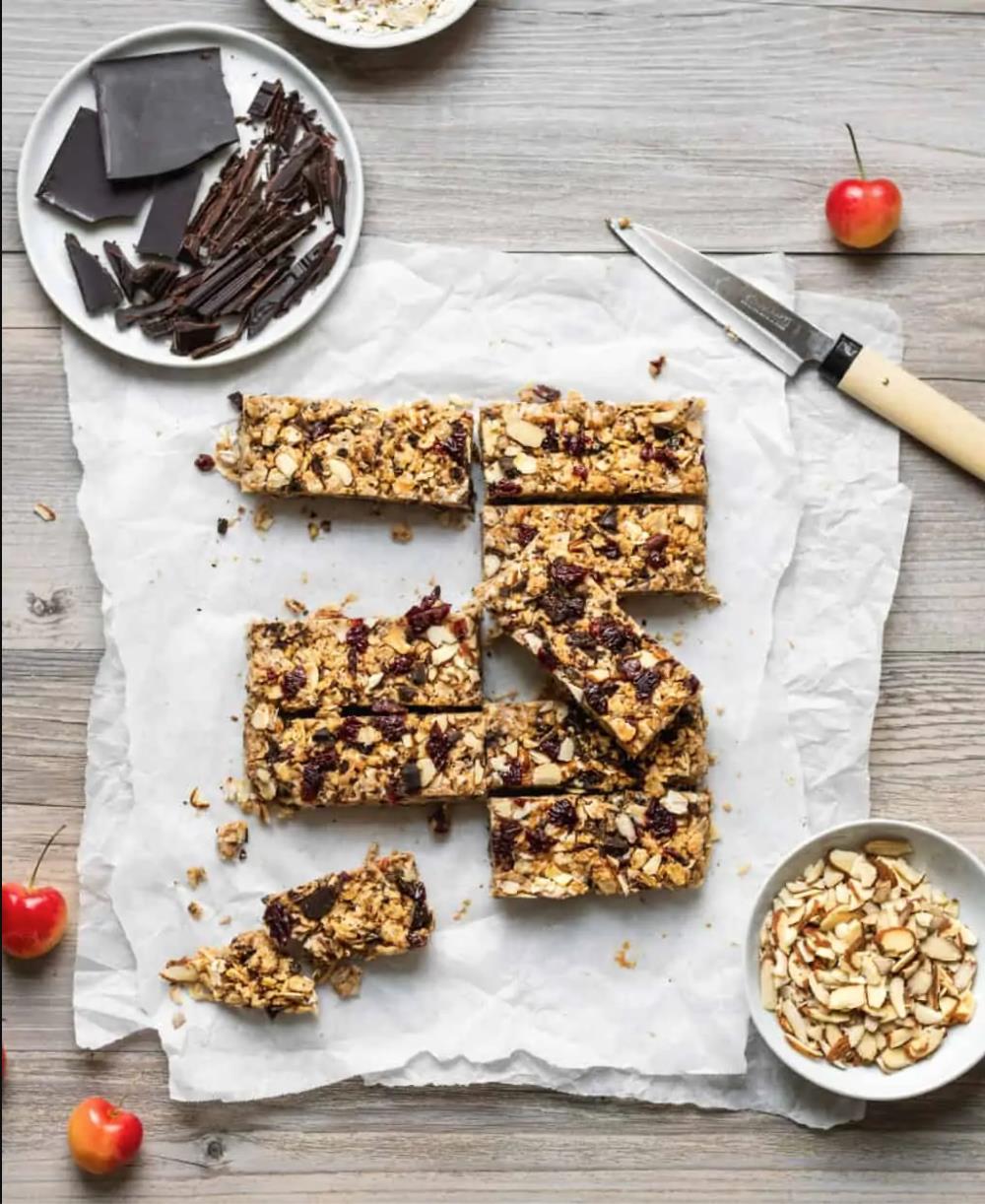
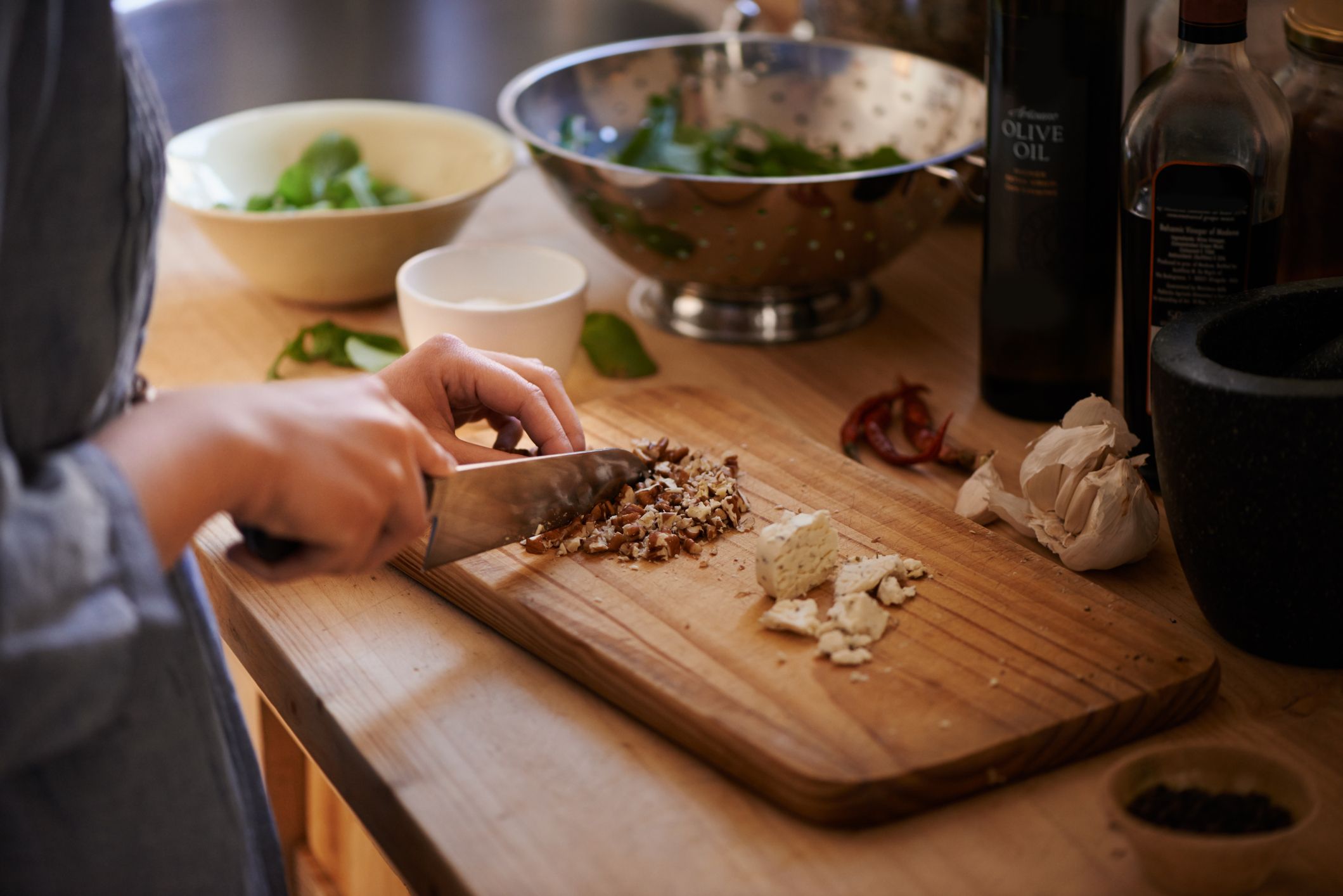
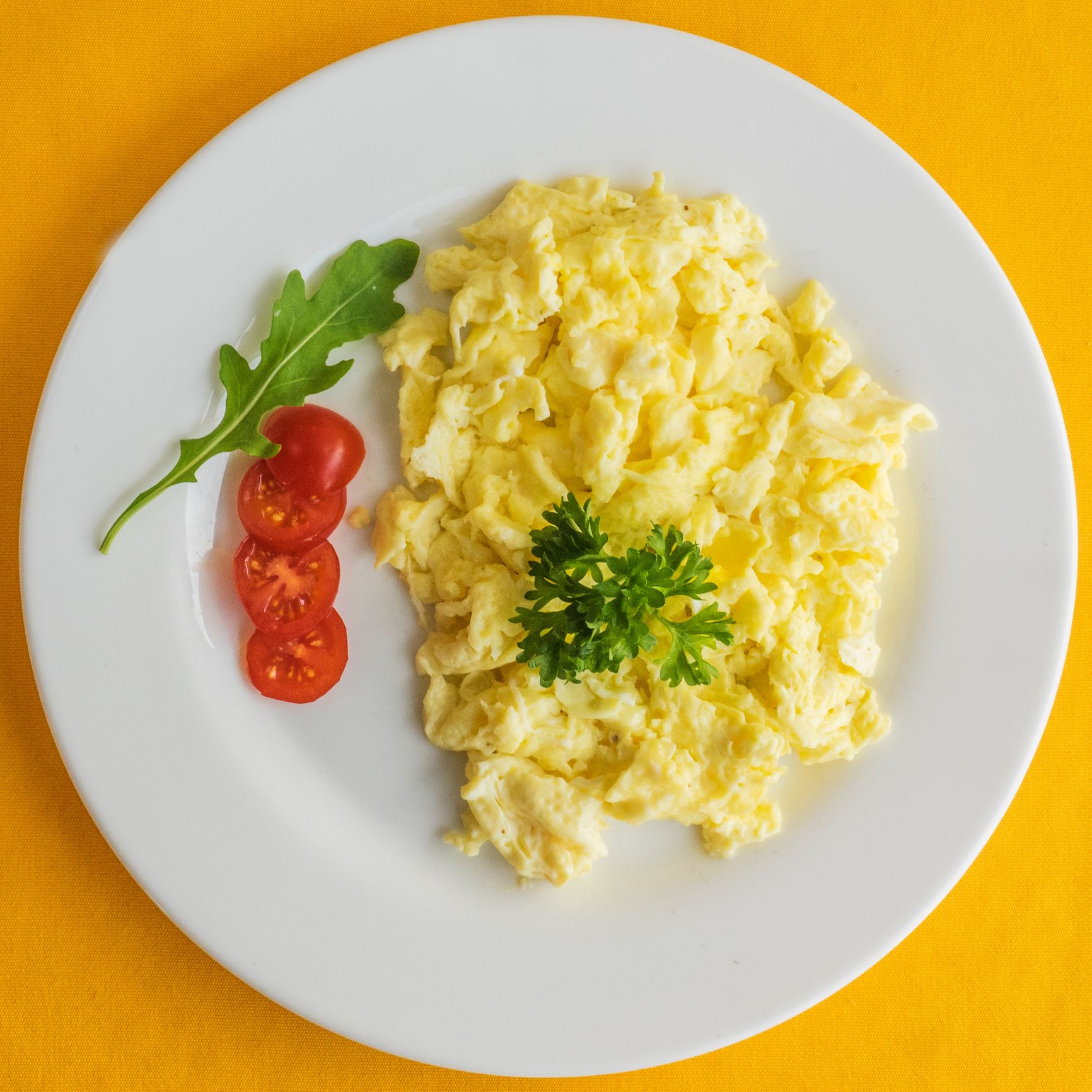
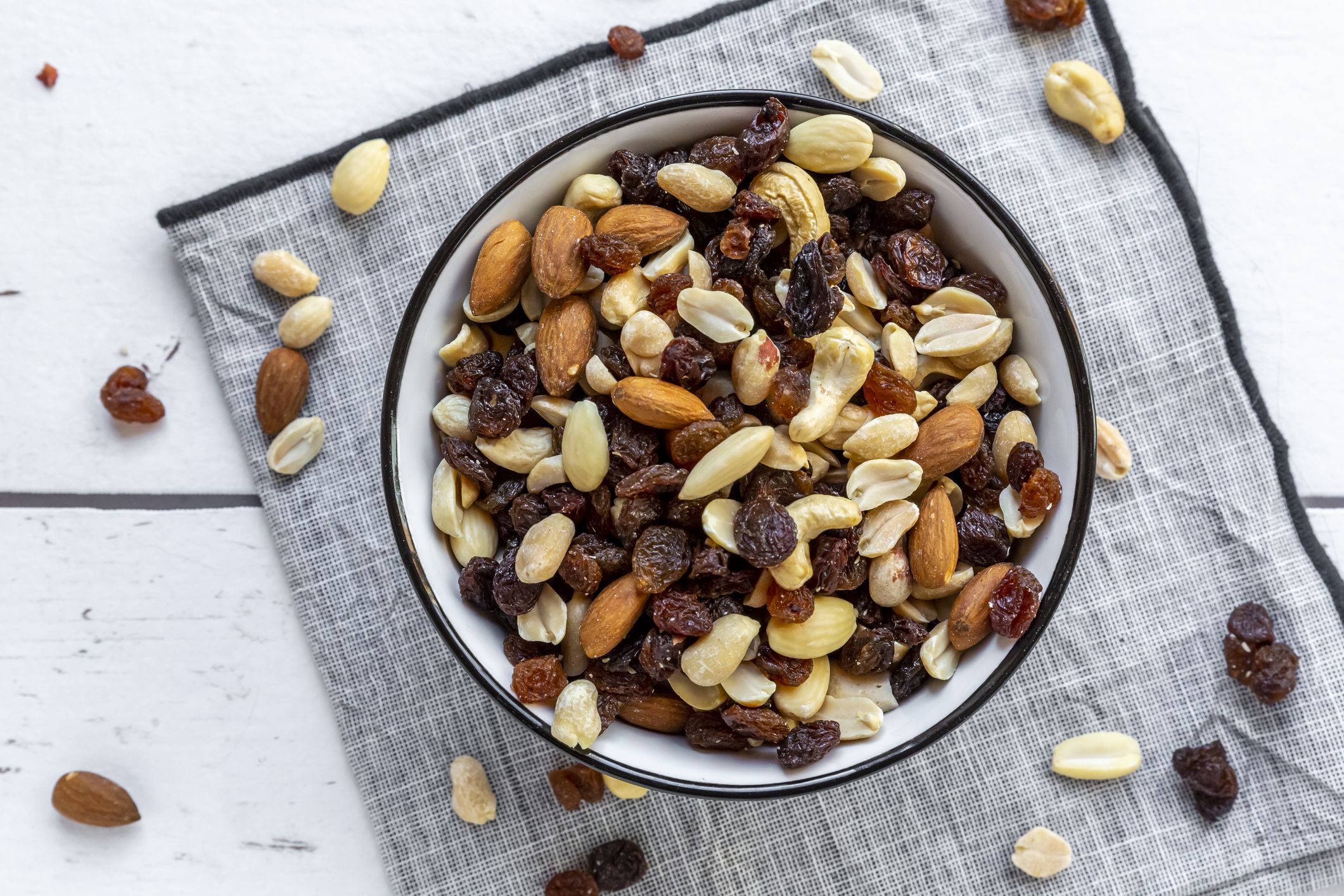
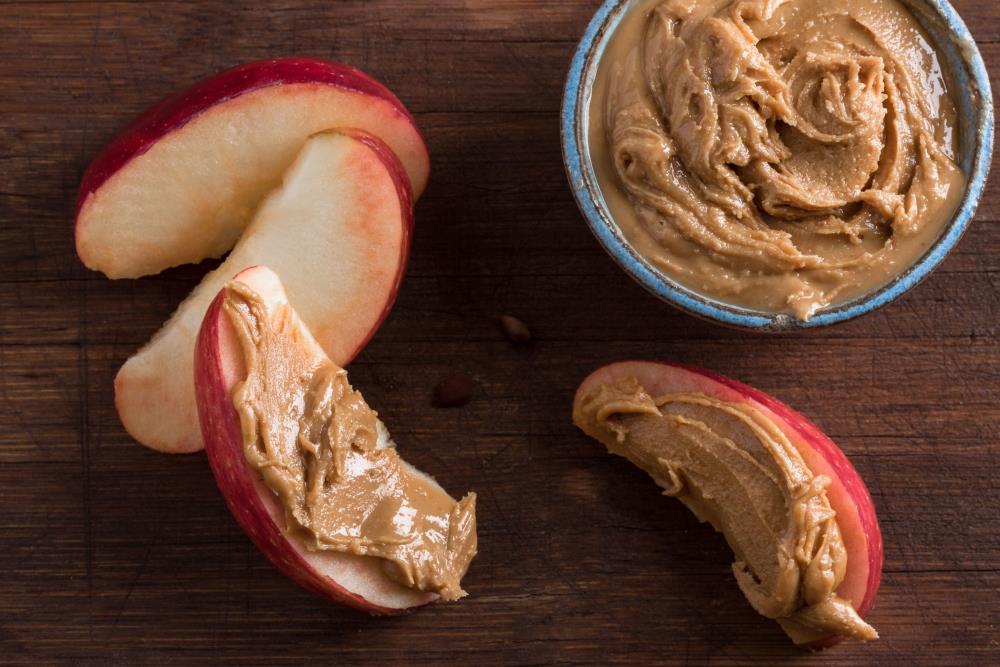
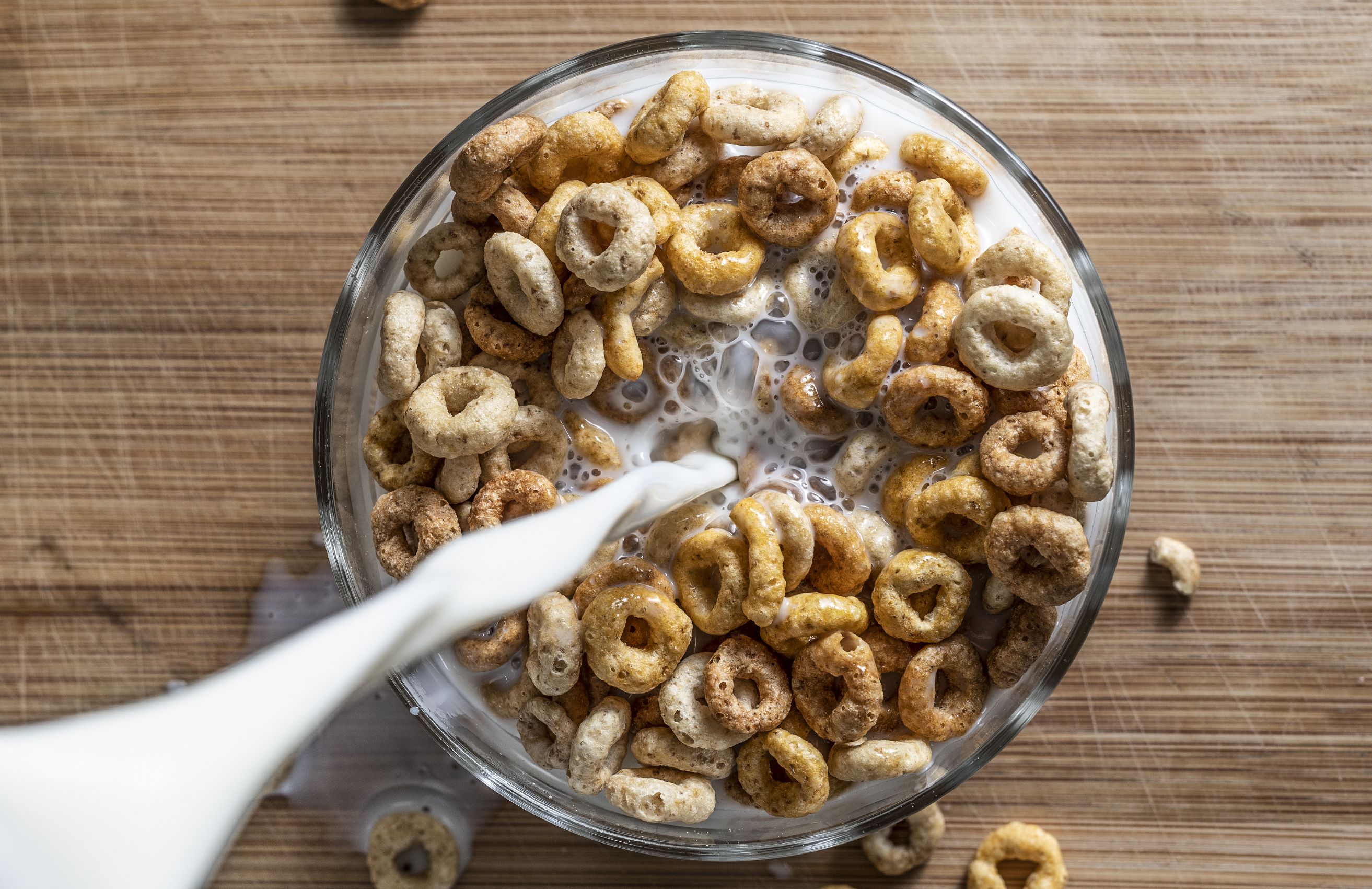
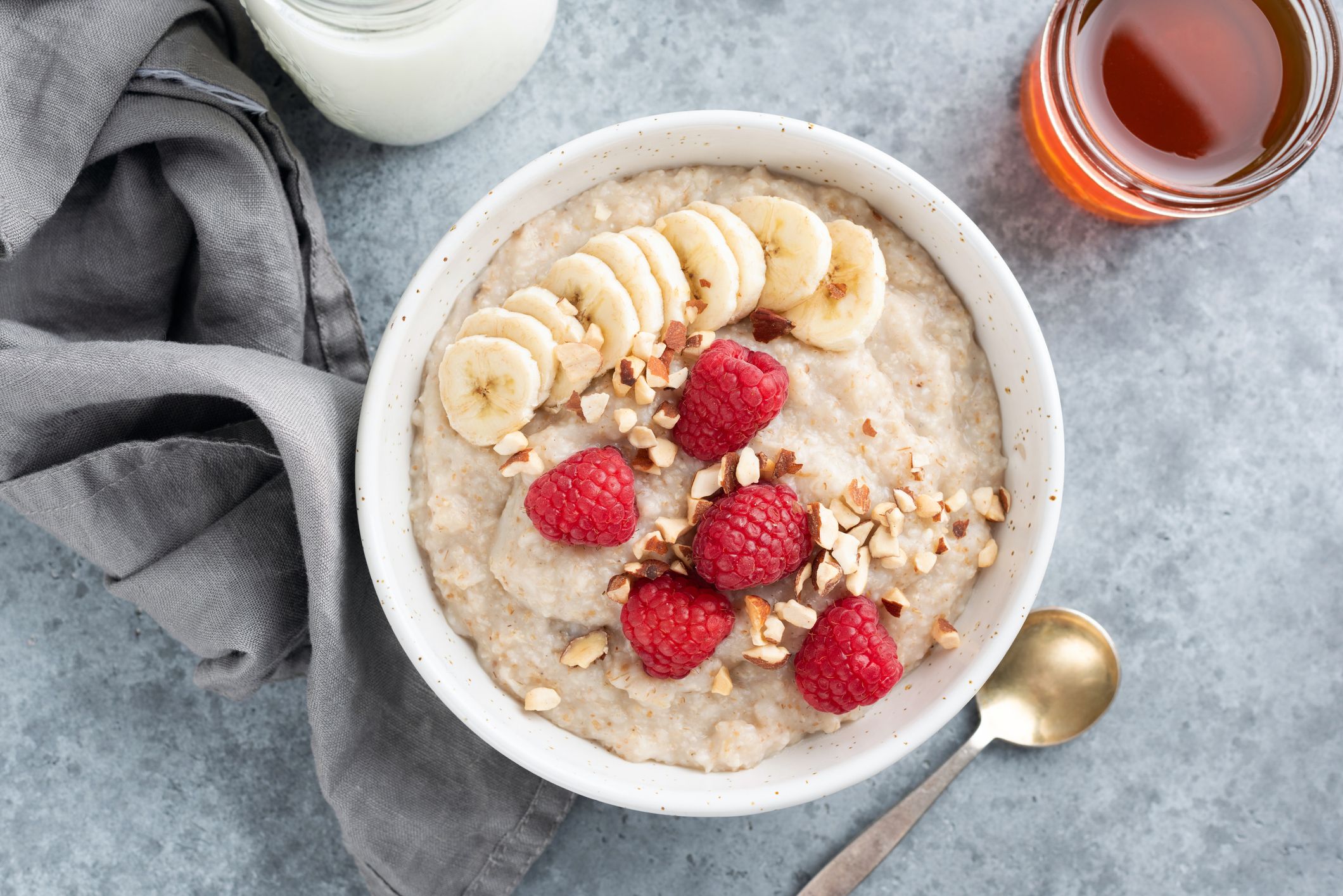
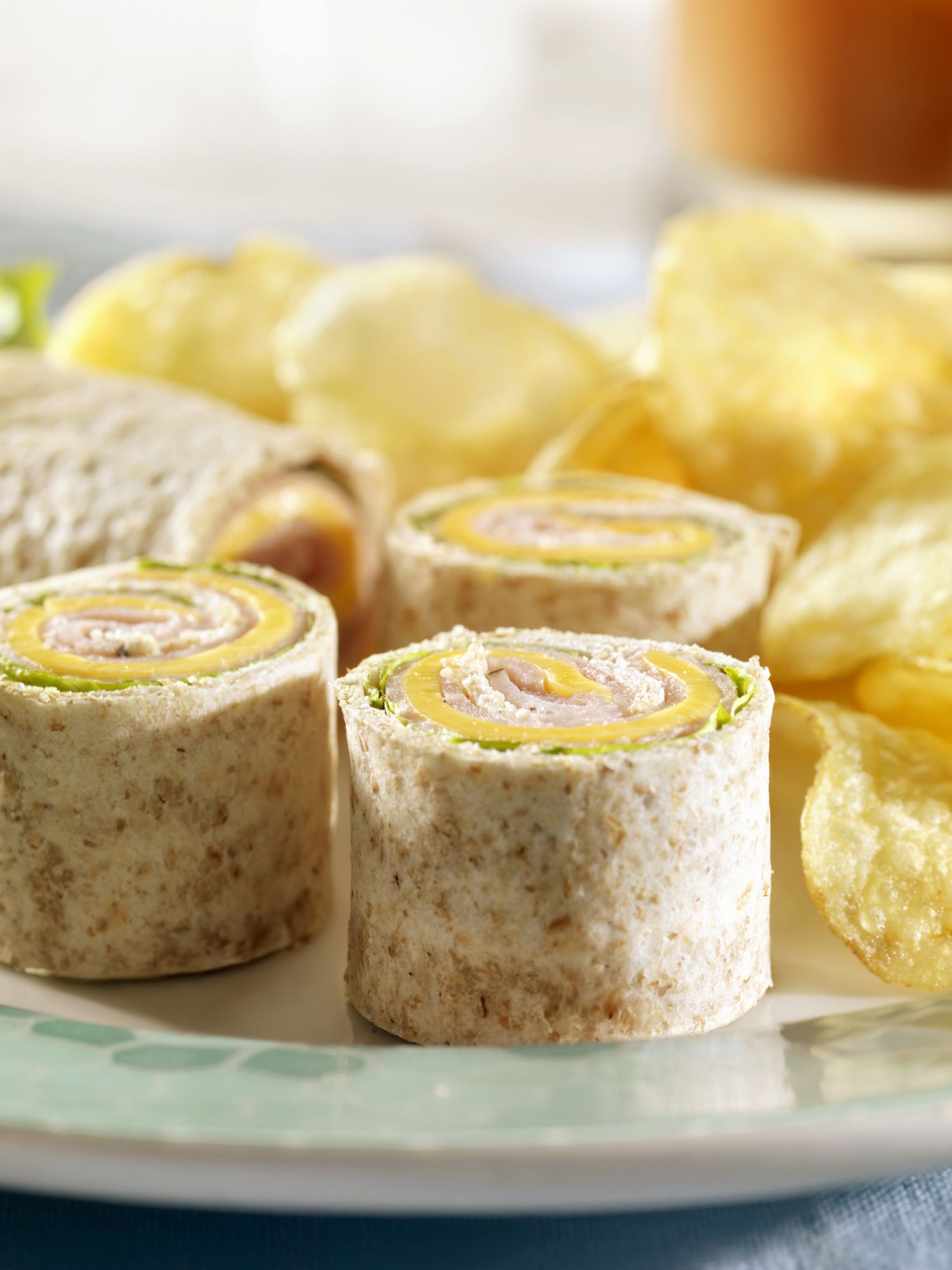
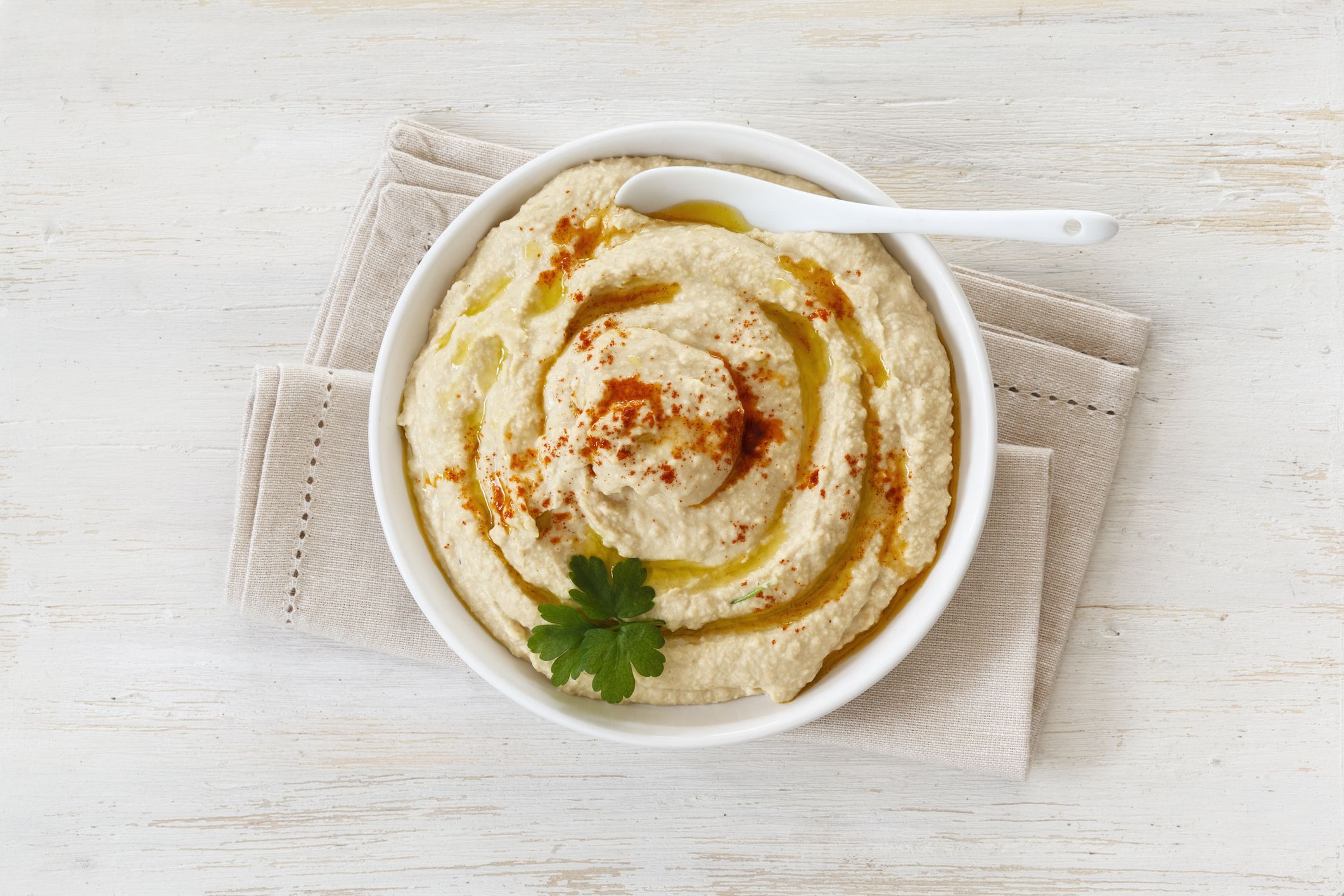
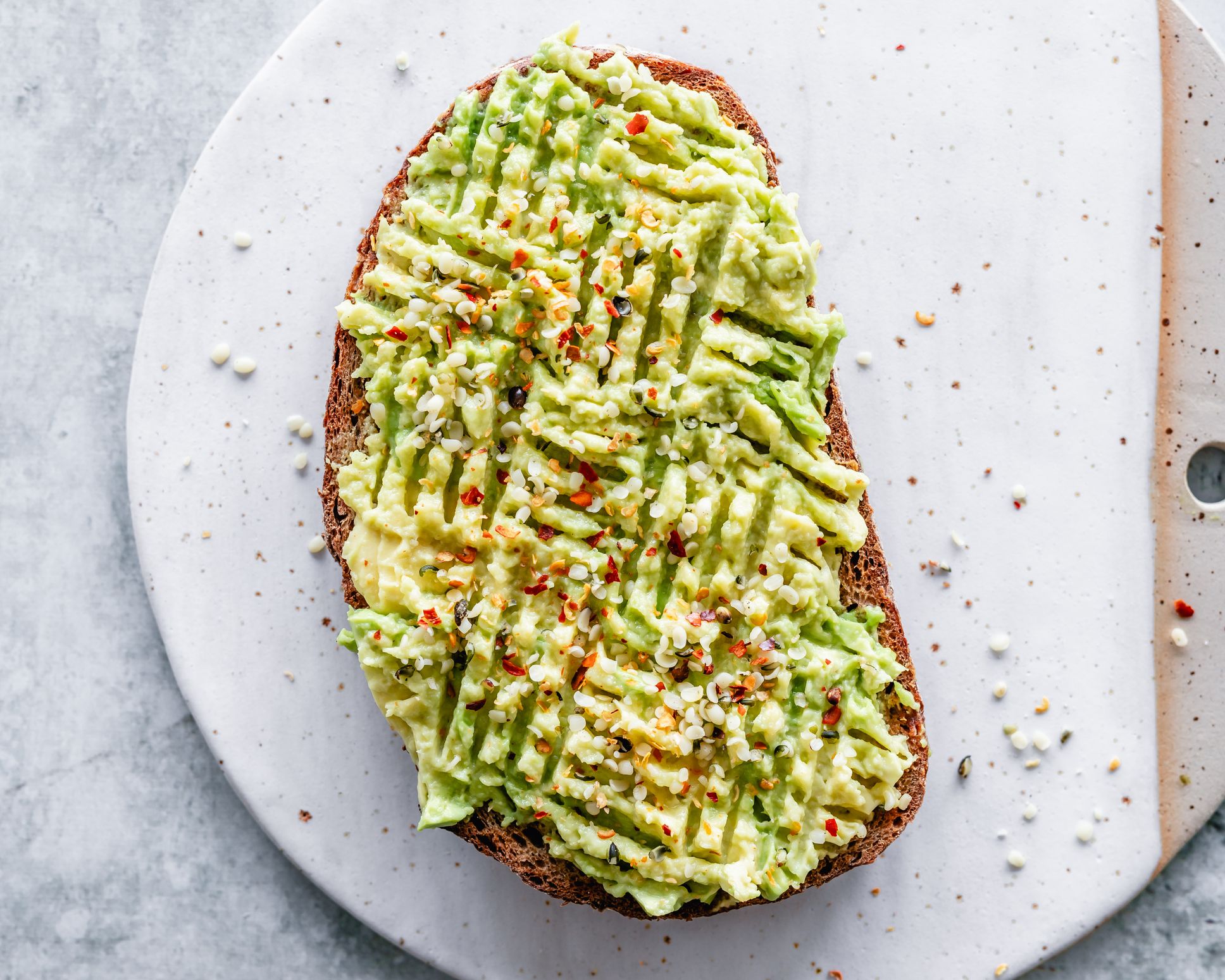
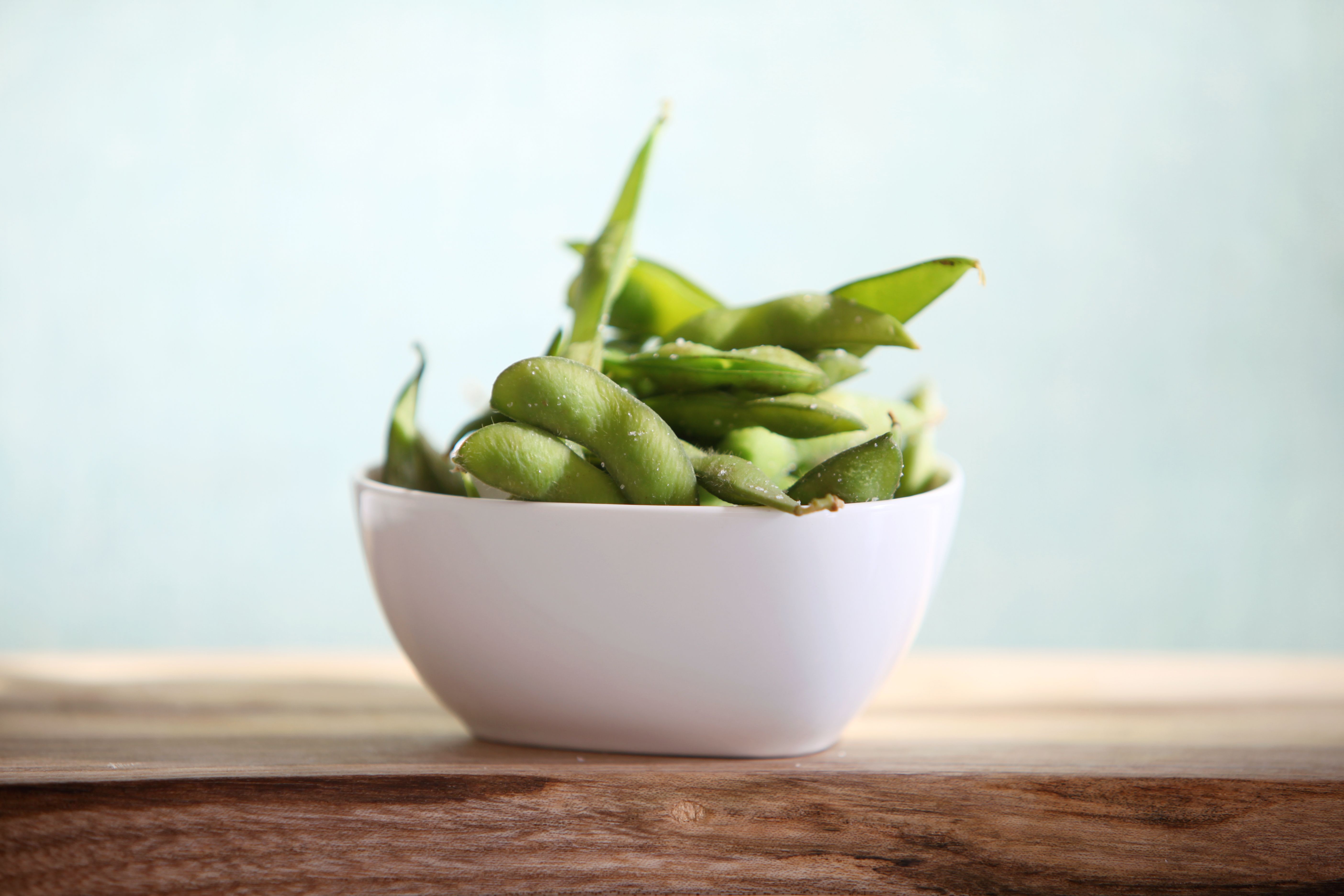
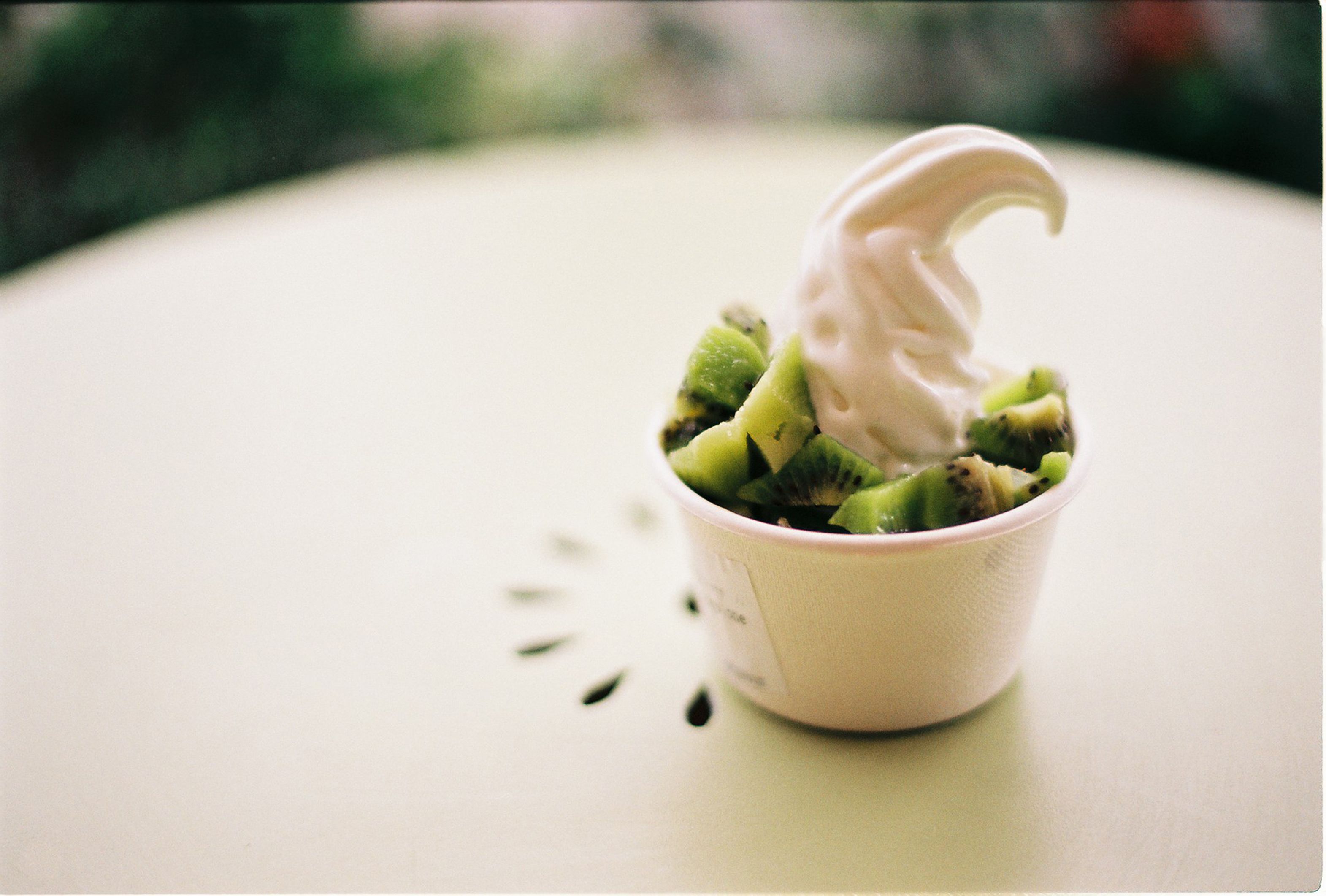
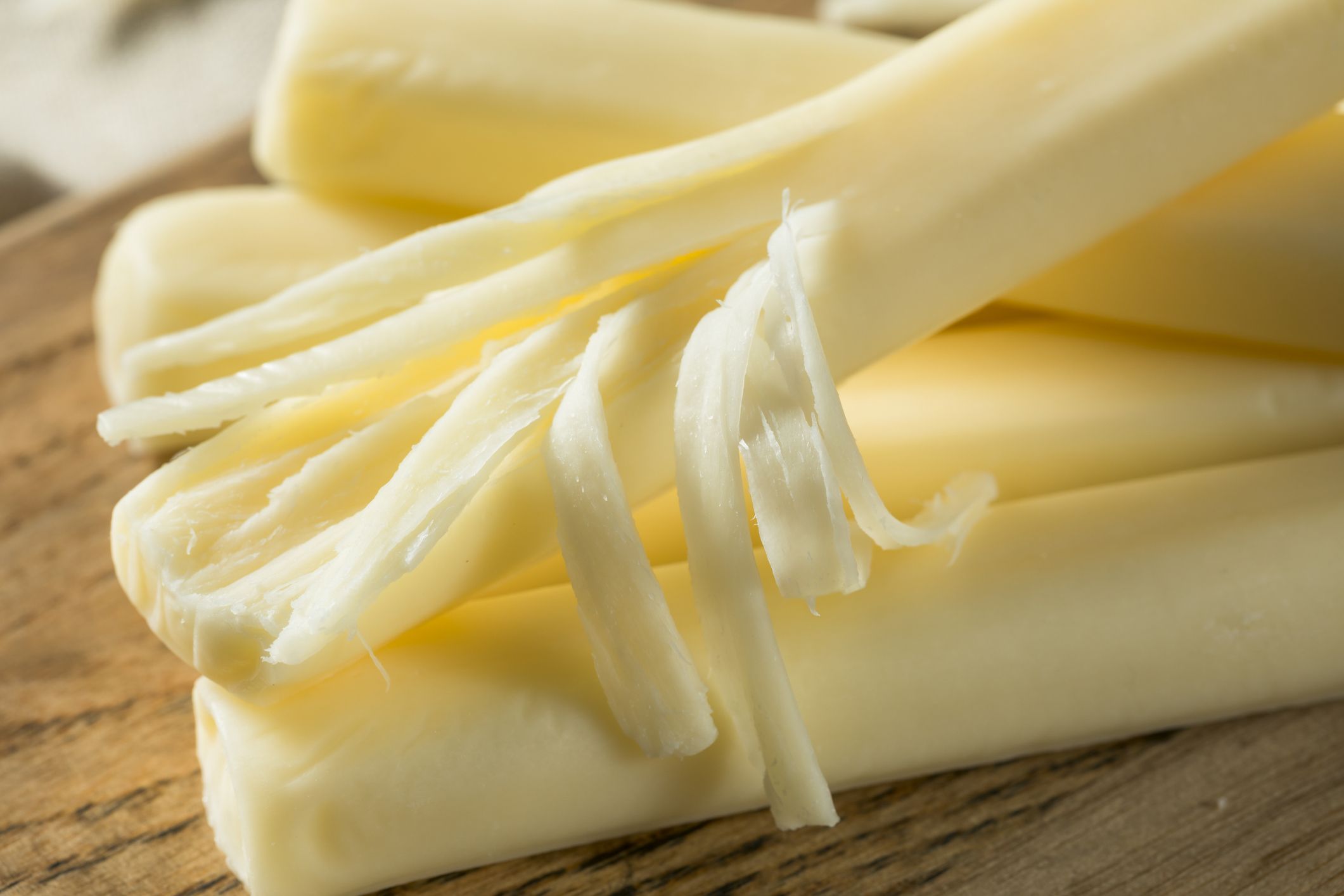
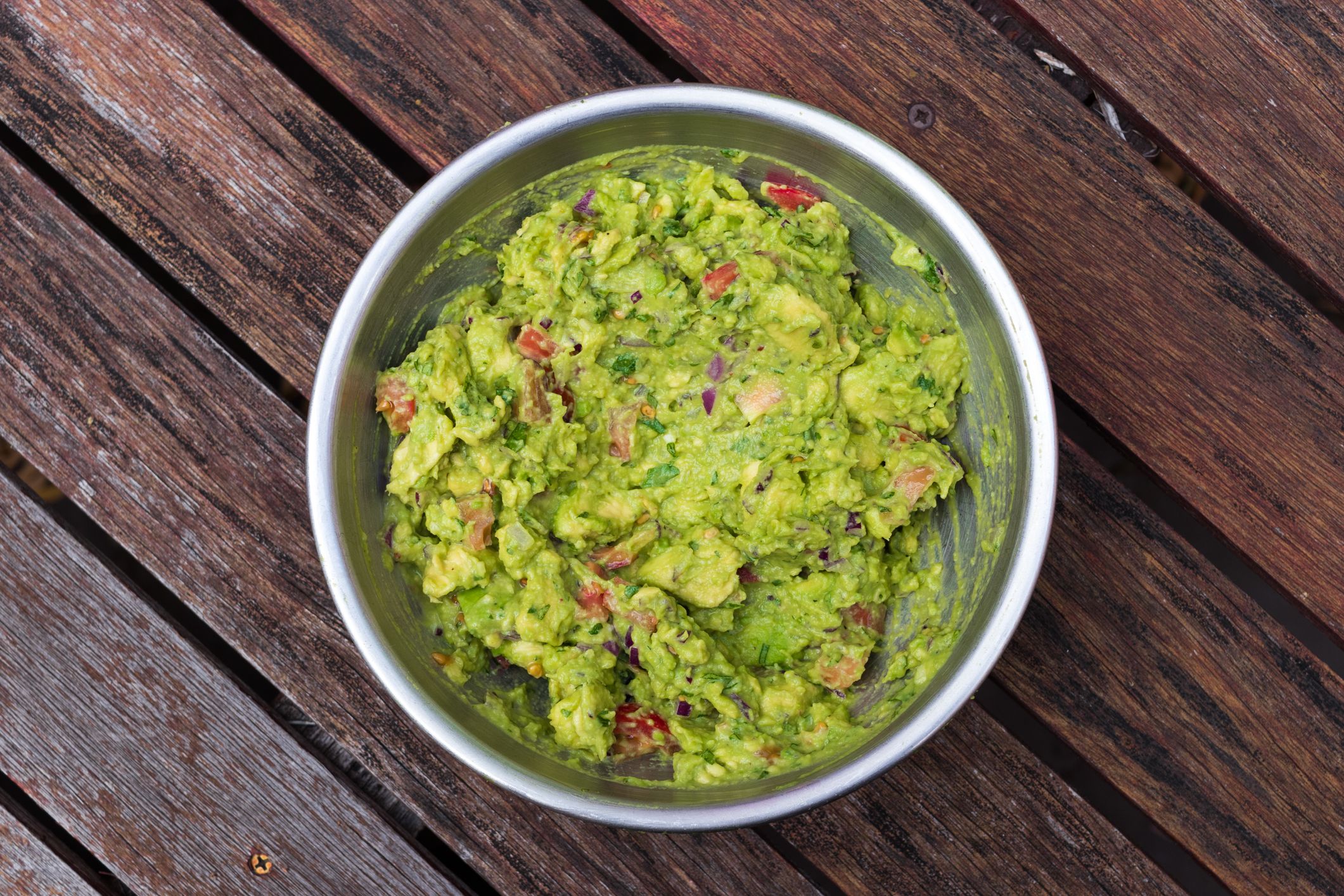
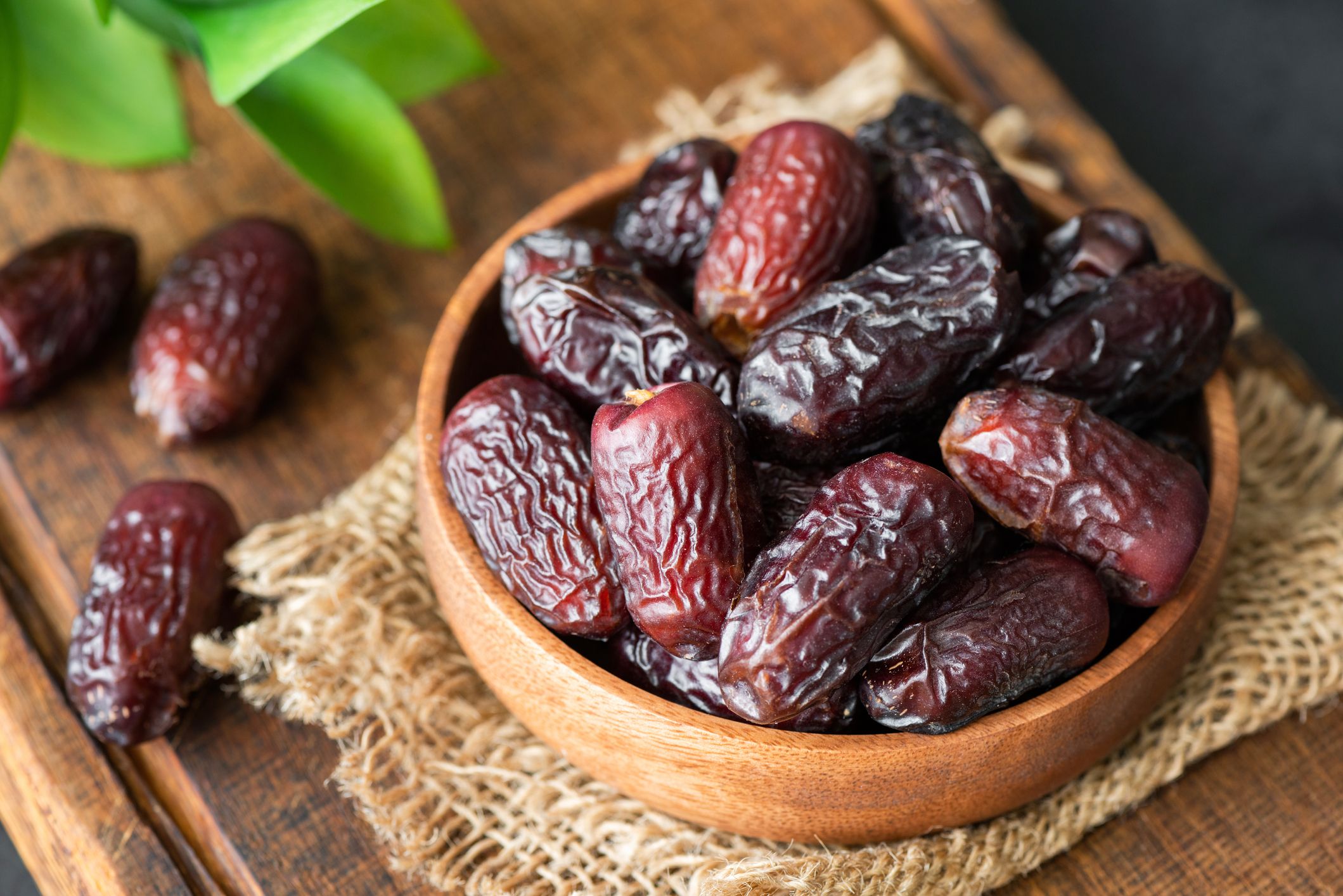
Moyo Studio ©Getty Images
1) Cottage Cheese and Berries
Spoon out some creamy cottage cheese with a handful of berries for a tasty treat full of filling fat and fibre, says Langer. She opts for a higher-fat variety to keep her full for longer.
Moyo Studio ©Getty Images
2) Crackers
Grab a box of your favourite cracker made from nut flours and seeds for a boost of fibre, protein, and fat to keep you full until morning, Langer says.
Moyo Studio ©Getty Images
3) Greek Yoghurt and Granola
Dig into a bowl of Greek yoghurt and top it off with your favourite granola for a crunchy treat, Langer says. She loves a good homemade granola recipe to bring fat, carbs, protein, and fibre.
Moyo Studio ©Getty Images
4) Homemade Muesli Bar
Often full of fibre, carbohydrates, and healthy fats, Langer enjoys a muesli bar. She likes to make her own homemade chewy chocolate cherry oat bars to keep the ingredients clean and sugar in check.
Moyo Studio ©Getty Images
6) Nuts and Cheese
A burst of protein, fats, and fibre make this the ultimate late night snack, shares Mathis. Plus, it’s easy to throw together, so you don’t need to stay up later than you already are.
Moyo Studio ©Getty Images
7) Eggs
These take a little more effort than your usual snack, but eggs are a great source of protein when you need something (relatively quick) and substantial enough to get you to morning. Mathis loves the high protein you get in each bite. Pair with berries for some extra carbs and fibre.
Moyo Studio ©Getty Images
8) Trail Mix
Have a mixture of dried fruit, dark chocolate, and a variety of nuts at the ready to crush your late-night cravings, Mathis suggests. The combo brings a ton of protein, fibre, and healthy fats and is an easy snackable option when hunger strikes.
Moyo Studio ©Getty Images
9) Fresh Fruit and Nut Butter
Grab an apple or banana to pair with your favourite nut butter. This combo often helps crush sweet and salty cravings, and is great to bring fibre, protein, and fats to your snack, Levinson says.
Moyo Studio ©Getty Images
10) Cereal and Milk
Choosing a low-sugar and high fibre cereal and berries can be a great, comforting snack, Levinson says. She especially likes that milk contains tryptophan, an amino acid that the body can use to create hormones that positively impact your sleep-wake cycle.
Moyo Studio ©Getty Images
11) Oatmeal
A warm bowl of porridge made with low-fat milk is a fibre rich snack that also has melatonin, which can help with sleep and relaxation, Levinson says. Mix in a sprinkle of cinnamon for some extra flavour and antioxidants.
Moyo Studio ©Getty Images
13) Whole Grain Wrap
Fill a wholemeal tortilla with a combination of protein and fats, like a smear of nut butter, a slice of turkey, or cottage cheese for a well-rounded late night delight.
Moyo Studio ©Getty Images
14) Hummus
This dip is the trifecta of healthy fats, carbs, and protein. Add a side of veggies, like carrots or capsicum, and whole grain pretzels to dip, and you have an easy evening bite.
Moyo Studio ©Getty Images
15) Avocado Toast
Your breakfast favourite just became your ultimate late night snack. Wholemeal toast and avocados are the dynamic duo for carbs and healthy fats. Sprinkle some feta cheese, hemp or pumpkin seeds on top for extra protein, and you have yourself a delectable snack.
Moyo Studio ©Getty Images
16) Edamame
These little pods are jam-packed with protein and fibre to be a nutritious snack in their own little packaging. Pick a brand that doesn’t add any salt and add just a touch to taste right before enjoying.
Moyo Studio ©Getty Images
17) Frozen Yoghurt
Experts always point to yoghurt as a great option for late-night snacking, but frozen varieties are just as great when cravings for something cool and creamy strikes. Be sure to pick an option high in protein, but low in sugar.
Moyo Studio ©Getty Images
18) String Cheese and Fruit
Perfectly portioned string cheese is an easy grab-and-snack option, and pairs perfectly with a piece of fresh fruit. Slice up an apple or grab or handful of blueberries for a fibre packed plate.
Moyo Studio ©Getty Images
19) Guacamole
Grab your favourite veggies and whole grain tortilla chips, because a few scoops of guacamole full of healthy fats is a great late-night bite. Pair with fibre-rich veggies, like cucumbers and broccoli, and whole grains for some carbs to keep you satisfied.
Moyo Studio ©Getty Images
20) Dried Dates with Nut Butter
Mix up your usual trail mix of nuts and dried fruit for this delectable delight. Slice a date down the centre and fill with a dollop of nut butter (and maybe a chocolate chip for good measure). It’s high in fibre and fat to satisfy your snack attack.









